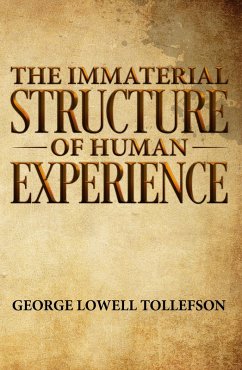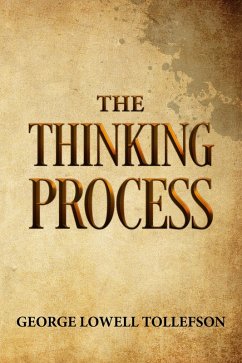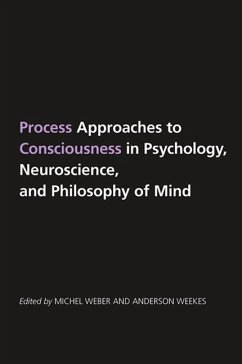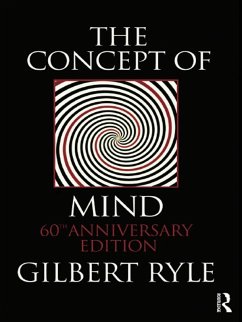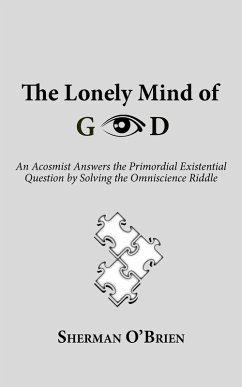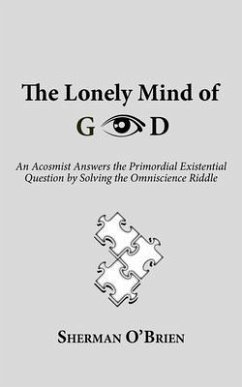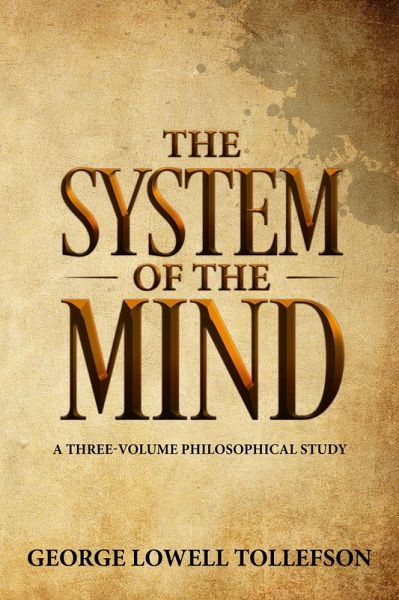
The System of the Mind (eBook, ePUB)
Versandkostenfrei!
Sofort per Download lieferbar
9,49 €
inkl. MwSt.
Weitere Ausgaben:

PAYBACK Punkte
0 °P sammeln!
At the beginning of the eighteenth century, the philosopher George Berkeley proposed the idea that "to be is to be perceived." This was a denial of the traditional and popular temporal-spatial separation of consciousness from its content. For under Berkeley's interpretation, everything perceived was to be understood as either in the mind of the individual or in the mind of God. It was God who provided material experience with its order and universal application, coordinating individual experiences into a single reality. This was accomplished, not through the senses, but within the perceiving m...
At the beginning of the eighteenth century, the philosopher George Berkeley proposed the idea that "to be is to be perceived." This was a denial of the traditional and popular temporal-spatial separation of consciousness from its content. For under Berkeley's interpretation, everything perceived was to be understood as either in the mind of the individual or in the mind of God. It was God who provided material experience with its order and universal application, coordinating individual experiences into a single reality. This was accomplished, not through the senses, but within the perceiving mind of each person.
Though Berkeley's ideas were accorded recognition as a magnificent tour de force by those who understood them in terms of their philosophical achievement, they were not appreciated by the general public and had little impact on them. Such has been the case for three hundred years. But recent developments in quantum science have once again raised questions concerning the boundary between mind and perception. The present work is not a defense of any scientific view. Rather, it is an independent examination of the relationship between consciousness and experience. It takes a close look at what is generally conceived as mind and, in doing so, observes the active role of consciousness in constructing the details of perception, imagination, and reason from impressions which make their appearance within an individual person's awareness. Thus, though their approach is unique to George Tollefson, the three volumes presented here revisit Berkeley's fundamental idea of mind as a sole source of experience. However, it is the author's view that there is but one universal consciousness, self-limiting as to the content supplied to each person's awareness. The limitation of that content is what creates an individual mind without violating the unity of consciousness. The System of the Mind explains why this is and explores the implications of this approach.
The Immaterial Structure of Human Experience reveals a system in which consciousness actively participates in the development of each individual person's experience. Sensations are mental impressions, some of which represent bodily feeling. But the majority do not. They are organized into images and concepts. These are thoughts that are either independent or represent physical objects which are organized by the mind in terms of space and time. The Limits of Reason explores the boundaries within which human awareness must function. All thoughts, including representations of physical objects, are a construct of the human mind. But an individual consciousness and the material informing its awareness arise from one universal consciousness. The Thinking Process expands upon the role of consciousness in its development of mental imagery and thought. From imagination and reason arises a context for perception in the form of space, time, and causation.
Though Berkeley's ideas were accorded recognition as a magnificent tour de force by those who understood them in terms of their philosophical achievement, they were not appreciated by the general public and had little impact on them. Such has been the case for three hundred years. But recent developments in quantum science have once again raised questions concerning the boundary between mind and perception. The present work is not a defense of any scientific view. Rather, it is an independent examination of the relationship between consciousness and experience. It takes a close look at what is generally conceived as mind and, in doing so, observes the active role of consciousness in constructing the details of perception, imagination, and reason from impressions which make their appearance within an individual person's awareness. Thus, though their approach is unique to George Tollefson, the three volumes presented here revisit Berkeley's fundamental idea of mind as a sole source of experience. However, it is the author's view that there is but one universal consciousness, self-limiting as to the content supplied to each person's awareness. The limitation of that content is what creates an individual mind without violating the unity of consciousness. The System of the Mind explains why this is and explores the implications of this approach.
The Immaterial Structure of Human Experience reveals a system in which consciousness actively participates in the development of each individual person's experience. Sensations are mental impressions, some of which represent bodily feeling. But the majority do not. They are organized into images and concepts. These are thoughts that are either independent or represent physical objects which are organized by the mind in terms of space and time. The Limits of Reason explores the boundaries within which human awareness must function. All thoughts, including representations of physical objects, are a construct of the human mind. But an individual consciousness and the material informing its awareness arise from one universal consciousness. The Thinking Process expands upon the role of consciousness in its development of mental imagery and thought. From imagination and reason arises a context for perception in the form of space, time, and causation.
Dieser Download kann aus rechtlichen Gründen nur mit Rechnungsadresse in A, B, CY, CZ, D, DK, EW, E, FIN, F, GR, H, IRL, I, LT, L, LR, M, NL, PL, P, R, S, SLO, SK ausgeliefert werden.




